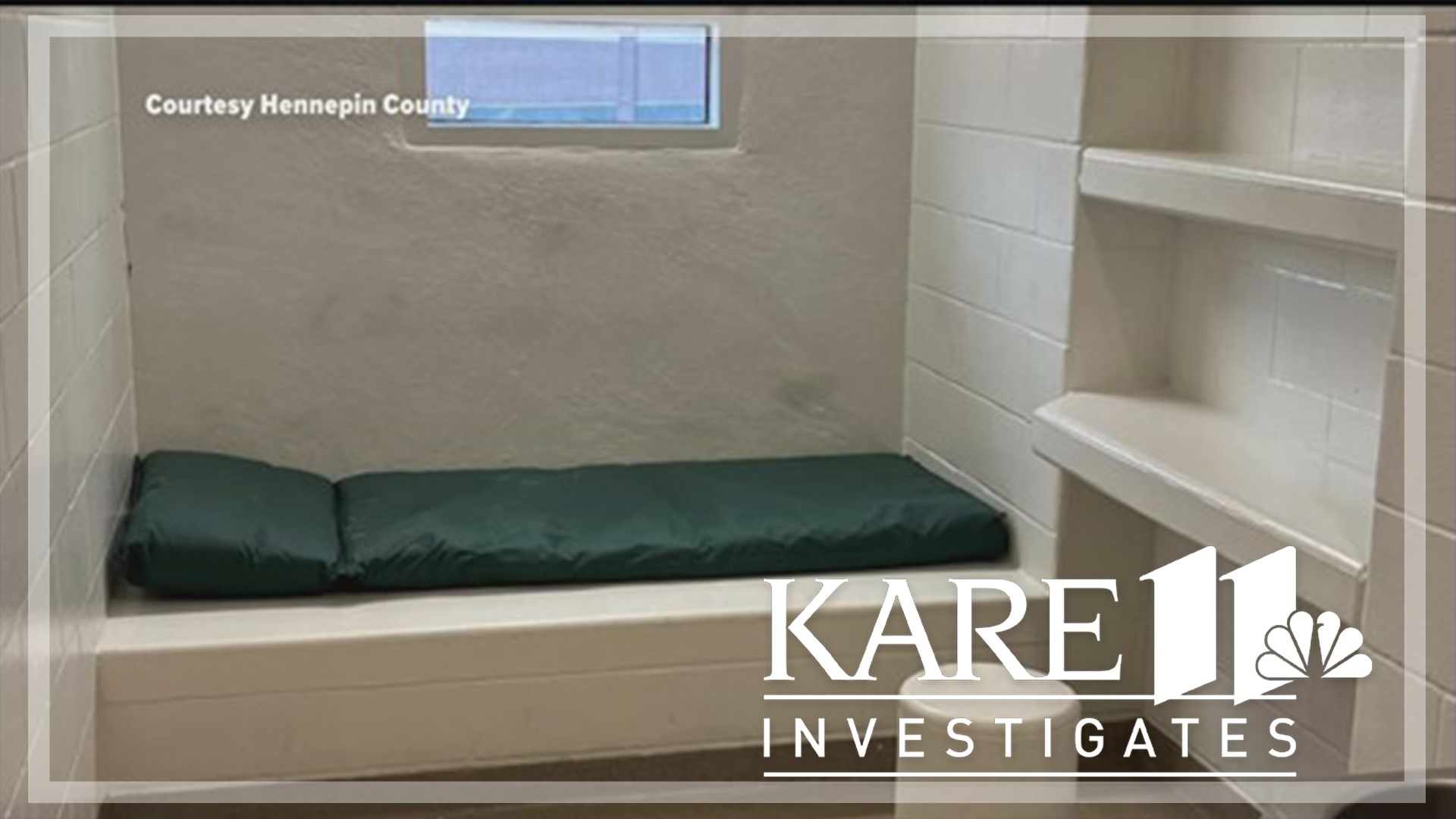SAINT PAUL, Minn — Gov. Tim Walz signed a bill Friday that will prohibit juvenile detention facilities from putting youth into solitary confinement, following KARE 11’s reporting finding that the practice is widespread in Minnesota.
The new law was included in a controversial public safety bill that split along party lines due in large part to gun safety measures, including universal background checks and red flag laws.
However, the provision to end juvenile solitary confinement had bipartisan support, passing unanimously from both the House and Senate public safety committees.
“These provisions strike people as common sense,” said DFL Rep. Dave Pinto, co-author of the House bill.
Juvenile lockups have routinely put kids into what’s known as “Disciplinary Room Time,” (DRT) where youth are locked alone in a cell as punishment, KARE 11 has found.
In February, KARE 11 reported kids were put into DRT for stretches of 24 hours or longer more than 7,500 times in the last five years, according to state and county data.
Minnesota’s three largest juvenile lockups – the Hennepin and Ramsey County detention centers, along with the Red Wing juvenile prison -- have ordered kids into solitary for five days or longer nearly 700 times since 2018.
Records show the Hennepin County Juvenile Detention Center once ordered a youth into DRT for 34 days.
Temporarily isolating youth for safety purposes will still be allowed under the new law.
Numerous national correctional and child medical associations oppose isolating kids for extended periods of time due to the devastating psychological impacts.
The vast majority of those kids in Minnesota’s juvenile lockups will get out, and go back to their homes, communities, and neighborhoods.
“This contributes to crime rather than helping,” Pinto said.
DFL Sen. Ron Latz, who chairs the Senate Judiciary and Public Safety Committee, echoed those concerns as a reason to ban juvenile solitary confinement.
“It’s a way to isolate them from causing trouble with others,” Latz said. “But in the end, it might cause longtime problems that might turn them into more violent, less mentally stable people.”
Juvenile detention administrators had defended the practice as a necessity to keep other children and staff safe. But as the bill to ban DRT winded its way through the legislature, they acknowledged the need for change.
“We very clearly support reform around the use of room time,” Matt Bauer, the director of the Dakota County Juvenile Services Center, said during senate testimony in March. He also represented the Minnesota Juvenile Detention Association.
“As practitioners and subject matter experts, we need to be involved in that reform and have a voice at that table,” he said.
The solitary ban will begin at the end of the year. By that time, the state Department of Corrections must come up with a new set of rules on isolating youth when needed for safety reasons.
DOC Commissioner Paul Schnell said in an interview with KARE 11 that his agency will recommend provisions to return isolated juveniles to a detention’s general population as soon as it is safe to do so.
“(Seclusion) has to be used for the purposes of safety and ultimately re-engage them in programming. That’s it,” he said.
The legislature is also requiring the DOC to report data on how often and how long children were isolated, and have that data broken down by race, age, and gender. The report must also identify facilities that did not comply with the new law.
Pinto credited KARE 11’s reporting as a reason the bill passed.
“Having the public be aware of this was absolutely helpful,” he said.
The governor signed into law other juvenile justice-related reforms, including:
- Making juveniles sentenced to life in prison eligible for release in 15 years instead of 30.
- Creation of the Office of Restorative Practices, which will help further encourage placing juvenile offenders into prevention programs, while also helping them re-integrate back into communities.
- Giving Ramsey County $5 million to establish secure youth treatment facilities.
- Restrictions on the use of strip searches at juvenile detentions, allowing them only when there is an immediate concern that a youth has contraband. Those searches must be performed by a health care professional or a juvenile detention employee trained in trauma-informed search techniques.
Watch more KARE 11 Investigates:
Watch all of the latest stories from our award-winning investigative team in our special YouTube playlist:

